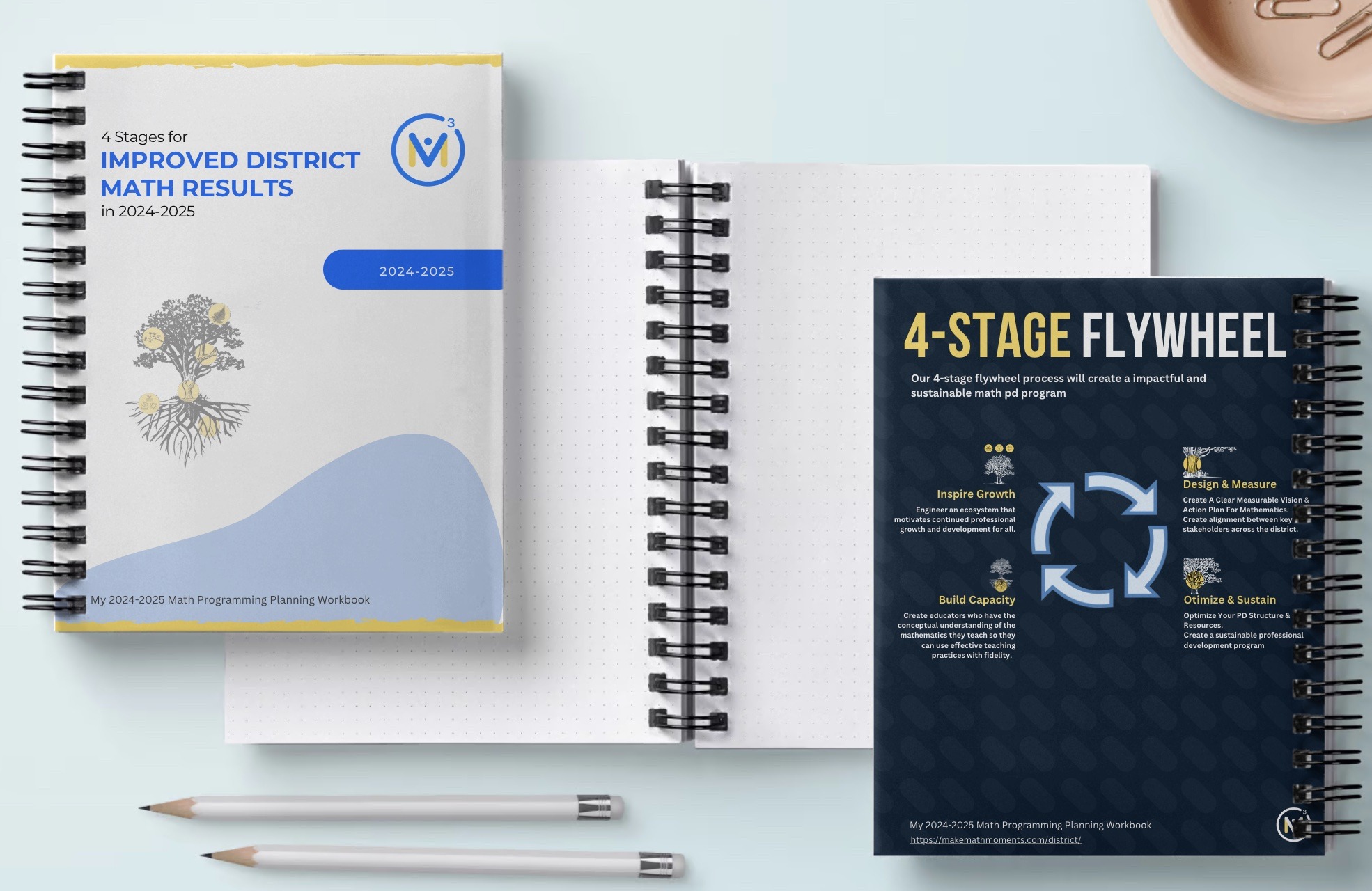The Meal Kit Strategy: Providing Scope & Sequence Scripts in Math Class
Should we provide teachers with complete curriculums that detail day-to-day activities?
How much script is too much script in the math class?
Navigating effective balance between guidance and independence is critical helping math teachers with effective pedagogical strategies.
As math coaches, coordinators, administrators, and consultants, it’s crucial to understand how to navigate the fine line between providing too much or too little support for teachers.
In a recent discussion with a math coach who is apart of our Improvement Program, we explored the challenge of finding the right balance in supporting teachers’ pedagogical development in mathematics.
The key issue is determining how much guidance to provide without stifling teachers’ creativity and initiative. Too much hand-holding, or ‘breadcrumbing,’ might hinder their critical thinking, while insufficient support could lead to inaction or a reluctance to take necessary risks in the classroom.
Should we provide teachers with complete curriculums that detail day-to-day activities, or should we offer resources that allow for more flexibility and creativity?
The answer varies based on each teacher’s needs and their stage in the professional learning journey. It’s important to recognize that one size does not fit all when it comes to teacher support (just like the support we aim to provide students).
Drawing a parallel with my personal experience with meal kit services like HelloFresh, I noted how following step-by-step recipes initially helped me become more confident and skillful in cooking, eventually leading me to experiment and create meals without needing a guide.
Similarly, well-designed teacher guides and lesson plans can act as effective tools for teachers, equipping them with the essential elements of curiosity, standard unpacking, and facilitating productive student struggles.
These resources serve as scripts that, when followed, empower teachers to apply these ‘ingredients’ in diverse and creative ways as they become comfortable using the ingredients.
Thus, the question of how much guidance to provide teachers boils down to understanding their individual needs and supporting them in a way that enhances their confidence and ability to make pedagogical decisions.
It’s not about limiting their thinking with a script but providing a structure that they can build upon.
As we evaluate resources, it’s crucial to assess whether they contain the right elements (“ingredients”) to facilitate this growth, rather than hastily dismissing or solely relying on them.
Focus Your Math Professional Development On What Matters
Free Training + Planning Workbook

LESSONS TO MAKE MATH MOMENTS
Each lesson consists of:
Each Make Math Moments Problem Based Lesson consists of a Teacher Guide to lead you step-by-step through the planning process to ensure your lesson runs without a hitch!
Each Teacher Guide consists of:
- Intentionality of the lesson;
- A step-by-step walk through of each phase of the lesson;
- Visuals, animations, and videos unpacking big ideas, strategies, and models we intend to emerge during the lesson;
- Sample student approaches to assist in anticipating what your students might do;
- Resources and downloads including Keynote, Powerpoint, Media Files, and Teacher Guide printable PDF; and,
- Much more!
Each Make Math Moments Problem Based Lesson begins with a story, visual, video, or other method to Spark Curiosity through context.
Students will often Notice and Wonder before making an estimate to draw them in and invest in the problem.
After student voice has been heard and acknowledged, we will set students off on a Productive Struggle via a prompt related to the Spark context.
These prompts are given each lesson with the following conditions:
- No calculators are to be used; and,
- Students are to focus on how they can convince their math community that their solution is valid.
Students are left to engage in a productive struggle as the facilitator circulates to observe and engage in conversation as a means of assessing formatively.
The facilitator is instructed through the Teacher Guide on what specific strategies and models could be used to make connections and consolidate the learning from the lesson.
Often times, animations and walk through videos are provided in the Teacher Guide to assist with planning and delivering the consolidation.
A review image, video, or animation is provided as a conclusion to the task from the lesson.
While this might feel like a natural ending to the context students have been exploring, it is just the beginning as we look to leverage this context via extensions and additional lessons to dig deeper.
At the end of each lesson, consolidation prompts and/or extensions are crafted for students to purposefully practice and demonstrate their current understanding.
Facilitators are encouraged to collect these consolidation prompts as a means to engage in the assessment process and inform next moves for instruction.
In multi-day units of study, Math Talks are crafted to help build on the thinking from the previous day and build towards the next step in the developmental progression of the concept(s) we are exploring.
Each Math Talk is constructed as a string of related problems that build with intentionality to emerge specific big ideas, strategies, and mathematical models.
Make Math Moments Problem Based Lessons and Day 1 Teacher Guides are openly available for you to leverage and use with your students without becoming a Make Math Moments Academy Member.
Use our OPEN ACCESS multi-day problem based units!
Make Math Moments Problem Based Lessons and Day 1 Teacher Guides are openly available for you to leverage and use with your students without becoming a Make Math Moments Academy Member.
Partitive Division Resulting in a Fraction
Equivalence and Algebraic Substitution
Represent Categorical Data & Explore Mean
Downloadable resources including blackline masters, handouts, printable Tips Sheets, slide shows, and media files do require a Make Math Moments Academy Membership.
Use our OPEN ACCESS multi-day problem based units!




